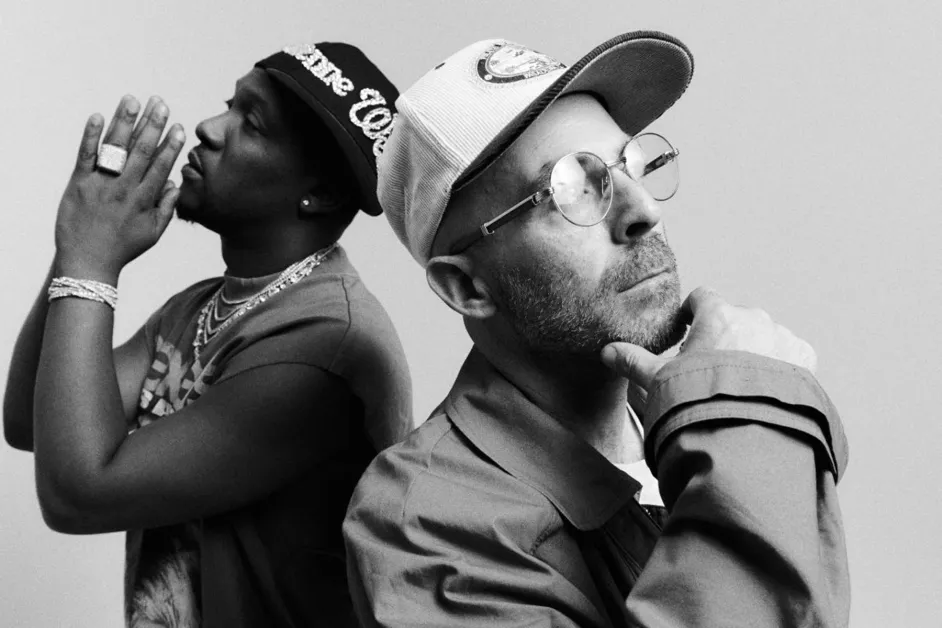New Jersey’s Haunted Strip Malls and Songs That Remember
In the unforgiving sprawl of suburban New Jersey, tucked between warehouse alleys, defunct shopping plazas, and sun-bleached highway signs, the band Public Works finds something eternal. It’s in this grey wash of everyday Americana that “County Mall” was born—a track that doesn’t just recall a place, but resurrects a way of life. From broken vending machines and misfiring fluorescents to young hearts stuck in cyclical longing, “County Mall” feels like a lived-in hymn for the emotionally displaced.
Public Works, led by singer-songwriter Jacob Dietrich, is not here to sell nostalgia. Instead, the emo-folk project animates the awkward, bruised beauty of New Jersey’s overlooked corners. “County Mall” is less about a specific retail center and more about the psychic space it represents: the in-between, the forgotten, the formative.
Emo-Folk in the Garden State
Musically, Public Works situates itself in the stripped-down lineage of mid-2000s emo crossed with modern folk austerity. Think Bright Eyes by way of Pinegrove, or Elliott Smith with roadside grit. But Dietrich’s voice doesn’t imitate—it remembers. His instrumentation is sparse but deliberate: clean-toned guitars, ambient buzzes, and soft-struck chords act like scaffolding for lyrics that cut into soft places.
“County Mall” fits squarely into this aesthetic, sonically channeling the warm tape hiss of analog recordings with the emotional immediacy of someone baring their teeth—quietly.
The track opens with a muted strumming rhythm, building like a warm-up in an empty room. There’s space, but not loneliness. The guitar loops feel intimate, as if you’re listening from the passenger seat of someone’s car while they figure out what to say.
What (or Where) Is “County Mall”?
Despite its title, “County Mall” is not a song about consumerism. There is no satirical takedown of capitalism here—there is, instead, memory. The “mall” is a placeholder, a spatial metaphor for the kinds of public-private zones where teenagers lingered too long, friendships bloomed under flickering ceiling lights, and people found solace in the anonymity of a crowd.
It’s possible Dietrich references real spaces from his upbringing in Ocean County, New Jersey—perhaps malls like the Ocean County Mall or ghosted plazas across the Route 9 corridor. But more than a fixed location, “County Mall” is about that nonplace between adolescence and adulthood. The kind of setting where you begin to feel your life becoming a pattern, and yet every song playing over the loudspeaker still feels like a sign.
Lyrical Themes — Ordinary Despair, Rendered Beautiful
Public Works’ power lies in emotional exactness. In “County Mall”, Jacob Dietrich doesn’t rely on metaphors to obfuscate feelings—he goes for direct impact.
“I never left this town / But I still write like I’m already gone…”
This opening line is a thesis for the entire project. It’s a confession and an indictment. It captures the strange purgatory of feeling too emotionally awake to stay, and yet too emotionally attached to ever really leave.
Elsewhere, lyrics take on a narrative shape—describing late-night drives, dissolving friendships, and parking lot fights remembered more clearly than family dinners. Dietrich’s delivery is restrained but not numbed. He sings as though he’s unsure if you’re listening, but still needs to get it out.
This restraint—this anti-performance—gives “County Mall” its emotional weight. You believe it not because it demands your attention, but because it trusts your empathy.
DIY Aesthetics and the Jersey Spirit
True to the emo-folk ethos, Public Works thrives on DIY aesthetics. Their releases feel handcrafted, not in a precious or curated way, but in the sense that they’re made by people with something urgent to say and no industry filter to shape it.
The visuals accompanying “County Mall” include analog photo textures, VHS grain, and Dietrich standing in front of massive wooden pallets, looking both hardened and fragile. There’s no performative posturing here. He’s not wearing a costume or claiming an identity—he’s simply showing up as himself.
That’s a Jersey thing, really. This is the state of Springsteen, Thursday, My Chemical Romance, and Pinegrove—artists who pull up their sleeves, sing what they know, and rarely pretend things are better than they are.
Reception and Resonance
Among New Jersey’s underground emo-folk scene, Public Works has quietly built a cult following. The r/Emo subreddit, Bandcamp comment threads, and Twitter lyric screenshots all testify to the track’s resonance. “County Mall” has been described as “the sound of growing up in a parking lot” and “a memory that keeps breaking through during the quietest parts of the day.”
Listeners don’t just like the song—they live inside it. For people in small towns, forgotten suburbs, or emotionally stunted moments of life, “County Mall” becomes a mirror. One listener commented, “This song sounds like how I felt when I worked nights at Wawa. I never knew how to describe that until now.”
Future Projects and Enduring Themes
While “County Mall” is a standout, it’s only part of a growing discography that includes tracks like “Dog”, “White Knuckle”, and “Long Island”. Each track furthers Dietrich’s mission: to build a body of work that acts as emotional cartography for the anxious, the alienated, and the attuned.
What sets Public Works apart is consistency. Every release continues the narrative. No song feels like filler. The project feels like a long-form journal set to chords—a documentation of what it feels like to stay somewhere you promised you’d leave, to love people you can’t reach anymore, and to keep writing about it until it hurts less.
The Echo of Empty Malls and Full Hearts
“County Mall” isn’t a song about malls. It’s a song about what those spaces hold—echoes of the people we were, the things we almost said, and the lives we still carry like ghosts on a lanyard. It’s about how our environments, no matter how uninspiring, shape us more than we want to admit.
Public Works gives voice to those feelings with grace and grit. In doing so, Jacob Dietrich offers a soundtrack not for escape, but for reckoning. And sometimes, reckoning sounds like a quiet voice in a shuttered store, strumming three chords, waiting for someone to walk by and hear it.
No comments yet.








